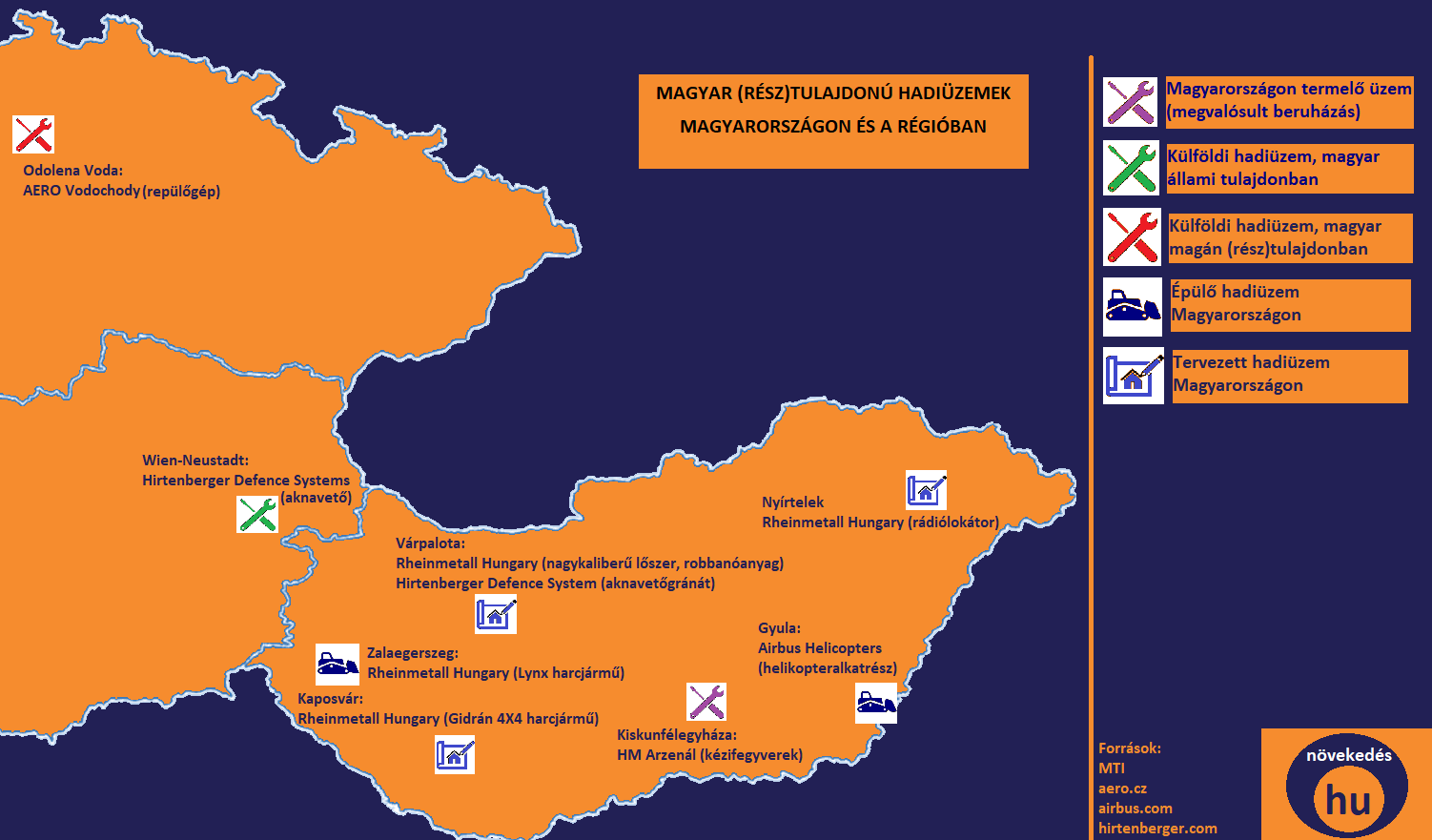Hungarian defence budget exceeds one thousand billion forints
EnglishNext year, the budget of the Hungarian Armed Forces will be 1,003 billion forints, i.e. it will exceed the HUF 1,000 billion mark, the Minister of Defence said in a briefing for retired soldiers and military pensioners in Veszprém on Thursday.
Tibor Benkő pointed out that while in 2016 the annual budget was only 299.1 billion forints, this year it already reached 778 billion. He added that they have more money to manage than the amount of the budget every year, because they regularly receive extra subsidies from the state; in 2020, for example, they received 246.6 billion forints in one year.
The minister explained that Hungary is situated "at the intersection of eastern and southern threats", so the Hungarian Armed Forces must become the dominant military force in the region and be able to defend the country and the region. In order to achieve this,
the amount allocated for defence spending in the budget will reach two percent of GDP in 2024, and at least 20 percent of that amount will be spent on procurement.
Tibor Benkő expressed his joy that the defence policy is making good progress, old dreams have come true in recent years with the new military development projects, and this process is expected to continue in the next period.
He stressed that the main concept is to procure the most up-to-date equipment possible, which is why they have bought and will buy in the future Airbus multifunction helicopters and Leopard tanks, among other things.
Hungarian owned military factories in Hungary and in the region

Hungarian owned military factories in Hungary and in the region
The minister pointed out that the aim is to restart the Hungarian military industry and the manufacturing of Hungarian weapons and equipment, so that “Hungarian soldiers would be armed with Hungarian-made equipment from head to toe".
He added that the first steps had already been taken, the country will be able to produce handguns, aircraft, minesweepers, infantry fighting vehicles, armoured personnel carriers, ammunition and gunpowder, and when it has become self-sufficient in all areas, its production capacity will be used to produce for the international market.
Tibor Benkő also stated that in addition to modern technical equipment, the country also needs loyal soldiers who can handle the equipment professionally.
He pointed out that with the abolition of the mandatory military service in 2004, the country's defence capabilities significantly weakened, and that
30,000 active soldiers and 20,000 reservists are not enough to defend Hungary; everyone is needed.
Ensuring the necessary military supply will be a key priority, and one of the main tasks of the new commander, Romulusz Ruszin-Szendi will be to set up voluntary reserve regiments in all regions, similar to those that are already operating in Székesfehérvár and Nyíregyháza.
There are plans for the establishment of military boarding schools, with 8 new ones to be opened across the country by 2030.
